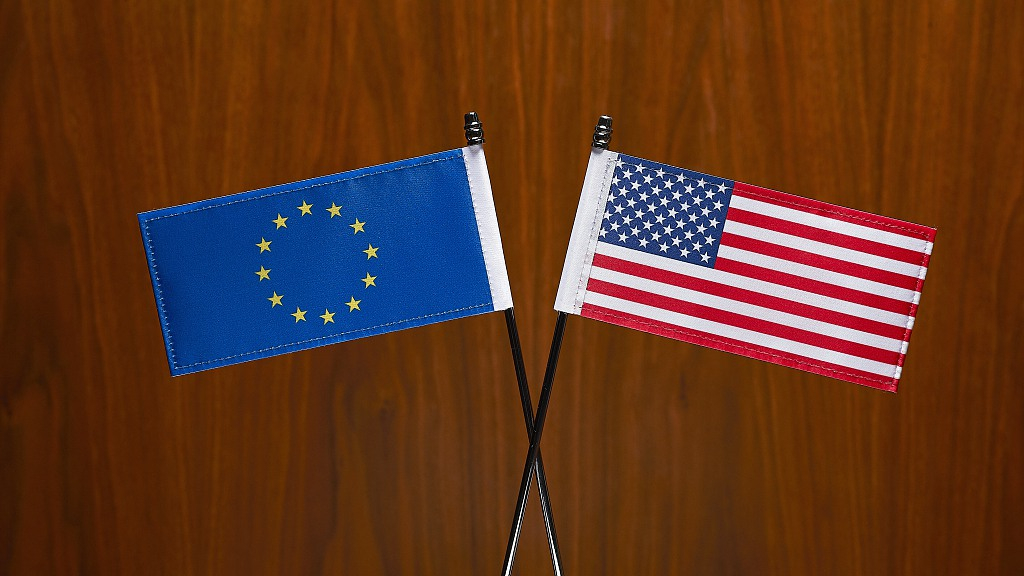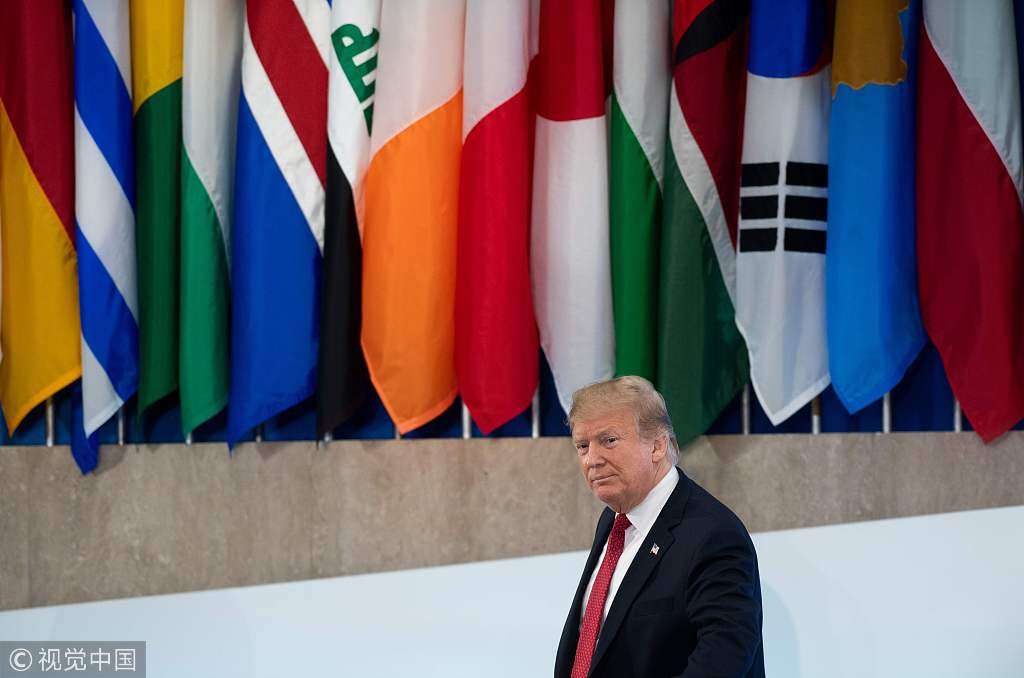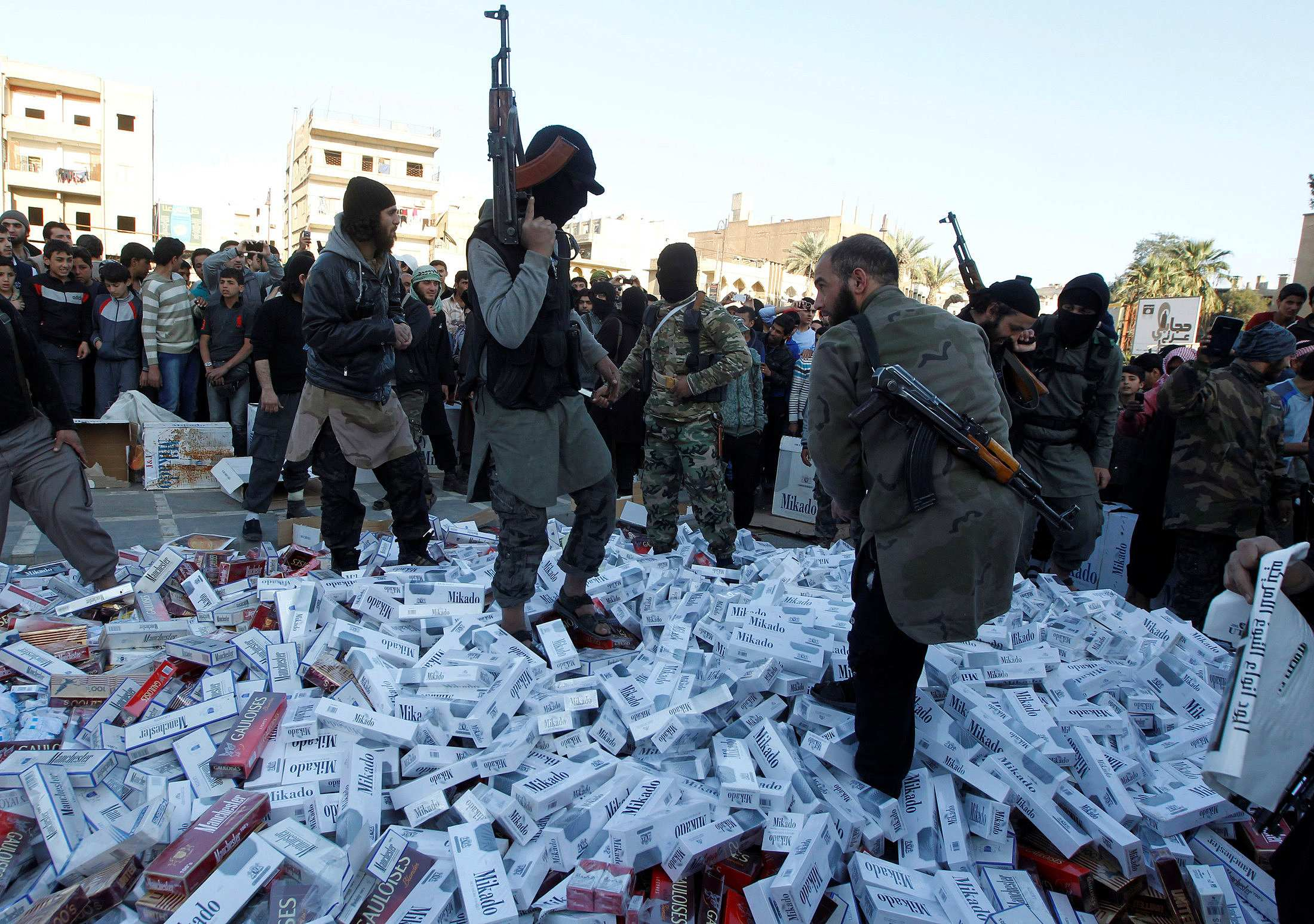
Opinion
09:44, 20-Feb-2019
De-radicalizing ISIL members is easier said than done
Wang Jin

Editor's note: Wang Jin is a research fellow at the Charhar Institute. The article reflects the author's opinions, and not necessarily the views of CGTN.
Following the Warsaw and Munich conferences, it became obvious that the gap between Europe and the United States is widening. Many European countries wonder whether Washington still takes its traditional allies, especially Britain, France and Germany, seriously. At the Munich Security Conference, German Chancellor Angela Merkel harshly criticized the U.S. for its trade and national security policies.
In the Middle East, President Donald Trump has joined the anti-Iran camp through his steadfast support to Israel and Saudi Arabia, while member states of the European Union (EU), especially France, Britain and Germany, still conform to the 2015 Joint Comprehensive Plan of Action.
Meanwhile, Trump has been calling on European states to take back more than 800 ISIL extremists captured in Syria, noting that "the U.S. does not want to watch as these ISIS (ISIL) fighters permeate Europe, which is where they are expected to go."
Given that the U.S.-backed Syrian Democratic Forces (SDF) have launched the "final attack" against the last pockets of ISIL territories in Syria, it is necessary to re-settle captured fighters and their family members. "Returning" this group back to Europe might be an easy task, but how to help them "de-radicalize" might not.

U.S. President Donald Trump leaves after speaking during the Meeting of Ministers of the Global Coalition to Defeat ISIS (ISIL) at the State Department in Washington, D.C., February 6, 2019. /VCG Photo
U.S. President Donald Trump leaves after speaking during the Meeting of Ministers of the Global Coalition to Defeat ISIS (ISIL) at the State Department in Washington, D.C., February 6, 2019. /VCG Photo
First, it is necessary to identify and investigate these militants. The victimhood narrative has proven to be repetitive among those who were once part of the terrorist group. They allege oppression during their time in the territories held by the extremist organization. It is important to identify them and understand what exactly did they do as ISIL fighters. The defeated ISIL members might lie about their experiences, and it is of utmost necessity to compare the different accounts of different fighters. Given that they come from different countries, it is important to establish close cooperation and intelligence sharing mechanisms between different European countries – and this will take time and patience.
Second, the terrorism of ISIL is as much about its practices as it is about its ideology. Therefore, the most pressing task for the re-settlement of these ISIL fighters is to persuade them to give up their extremist Islamic beliefs and help them get back to the correct path of Islam.

ISIL fighters hold their weapons as they stand on confiscated cigarettes before setting them on fire in Raqqa, April 2, 2014. /VCG Photo
ISIL fighters hold their weapons as they stand on confiscated cigarettes before setting them on fire in Raqqa, April 2, 2014. /VCG Photo
This requires in-depth investigation from intelligence bodies and academic researchers, and the help of moderate Islamic clerics to persuade these extremists through their knowledge of both the Quran and Hadith, the sayings of Prophet Muhammad.
It is not only necessary to establish community centers and organizations to facilitate the process of rehabilitation, but it is also important to promote coordination between different academic, religious and government establishments.
Third, even after the confession and repentance of ISIL members, monitoring these fighters is a crucial step.
Some extremists could manage to hide their extremist ideas, and might re-connect with other extremists or try to propagate radical thinking to other young Muslims behind closed doors. What's worse, they might travel across different EU member states to create new extremism networks. Therefore, continuous supervision and cooperation between the intelligence establishments of different EU members are needed.
Given these sets of challenges and difficulties, it is necessary to establish mechanisms of cooperation and coordination between the U.S. and EU states to deal with detained ISIL fighters. It is always a different task to de-radicalize extremists, and Trump's call for the EU to take their nationals back might not be an easy task.
(If you want to contribute and have specific expertise, contact us at opinions@cgtn.com.)

SITEMAP
Copyright © 2018 CGTN. Beijing ICP prepared NO.16065310-3
Copyright © 2018 CGTN. Beijing ICP prepared NO.16065310-3